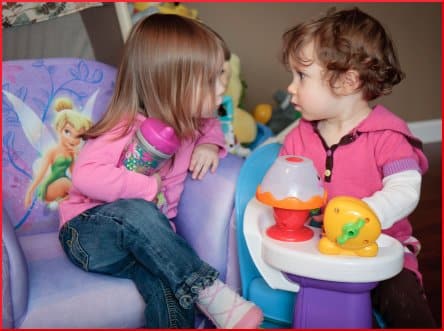
Pediatrician Sue Hubbard, a.k.a. “The Kid’s Doctor,” hosts a TV show and believes in the importance of family routines. Along with many others in the health care field, she expressed her opinions about an Ohio State University study whose results seemed to indicate that family routines can impact childhood obesity. As Childhood Obesity News noted, certain factors showed up as significant:
Three main elements of routine were looked at. Does the family eat their evening meal together at least six times a week? Do the kids have a regular bedtime and get enough sleep? Is the child’s time with TV and other types of electronic screens limited?
Many other experts suggest various important aspects of family routine, such as joining a fitness center with classes for children so they can exercise at the same time as their parents. It’s also a good idea for parents to be alert and keep track of activities that are available to be done all year round, so the kids don’t have any excuses.
In her assessment, Dr. Hubbard mentioned that the Ohio study did not even get into questions about healthy food choices or communal breakfasts, both of which she believes to have benefits. She is firmly in favor of clearly defined bedtimes for children, even teenagers. Her strong feelings about screen time are apparent when she writes:
Lastly, the American Academy of Pediatrics has recommended that children under 2 years of age not watch TV, and for those older than 2, there should be no more than 2 hours of television/DVD/movie/computer time per day. I would add that children should not watch TV prior to their school day, and that includes watching movies in the car en route to school!
But then along comes Kathryn Doyle, reporting on a meta study originating from Johns Hopkins University School of Medicine in Baltimore. These researchers took what they determined to be the best six studies on home-based anti-obesity programs for kids and analyzed them. Doyle says:
Three included diet and exercise, one was on diet alone and two also included primary care or school programs. The kids ranged from two to 18 years old… Some, but not all, included actual exercise sessions… The studies either compared the home-based program to another program or to a comparison group of kids not enrolled in any program. All measured the kids’ weight or body mass index (BMI), an indication of body fat percentage, at least one year after the program had ended, to see if it had any effect.
The study’s lead author, Dr. Nakiya Showell, added that most of the programs her team examined involved educating both the children and the parents about nutrition and exercise and the importance of cutting down screen time. Some of the programs succeeded in convincing kids to include more fresh vegetables and fruits in their diets, or to move around more.
Unfortunately, when the one-year followups took place, there was no noticeable difference in the weights or BMI scores of the participants. In other words, home programs don’t work.
Doyle mentions some of the perceived problems with this apparently discouraging finding. There aren’t enough studies of this type of program to make a really satisfying meta study. With an age range of kids from toddlers to practically adult, the spread is too wide to provide meaningful answers. And Dr. Showell would have liked to have more information to work with, about parental attitudes and practices and role-modeling.
Should we be surprised that these programs make such a poor showing in their outcomes? Probably not. After all, the research totally ignored some major facts by failing to look at the childhood obesity epidemic through what Dr. Pretlow calls “the psychological food dependence-addiction lens.”
Your responses and feedback are welcome!
Source: “Family routines can reduce childhood obesity,” Chicago Tribune, 07/30/13
Source: “At-home weight loss programs for kids lack long-term evidence,” The Denver Post, 06/13/13
Image by Dean Wissing.

 FAQs and Media Requests:
FAQs and Media Requests: 











